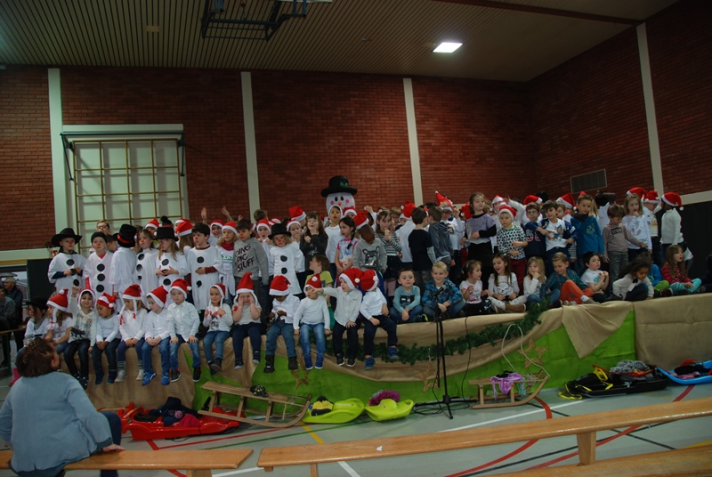Topic(s) addressed
The EUFURES project’s central objective was to help pupils become responsible European citizens. The pupils and teachers involved in this project developed a so-called learning cycle that covers the topics of energy production and a sustainable lifestyle. The learning cycle consisted of a blended learning approach: interested schools were provided with videos, working sheets, and interactive exercises (materials were usable both online or printed) that they could use to work with their pupils on various subjects. The horizontal programme priority chosen for this project was innovative education, training and youth work in a digital era, with a focus on “Energy and Resources” and “ICT -new technologies- digital competences.” In order to develop the learning cycle and be able to complete them on their own, participating pupils and their teachers made use of multimedia, distance learning, and field visits (within their respective countries).
Target groups
The pupils who participated in the project were between 10 and 13 years old, with tangible project results developed for pupils in the 10-12 or 10-13 age category –depending on the linguistic competences of the various countries. Participating pupils came from Germany, Romania, Turkey, the Czech Republic, Greece, and Luxembourg, with approximately 60 pupils from disadvantaged backgrounds given the opportunity to participate in the project. Approximately 400 pupils were approached by the partnership during extended testing phases that were implemented across all 7 partner schools, in the interest of gathering feedback on the learning cycle and its deliverables.
Methodologies
The project was highly innovative, and although teachers and pupils of participating schools came from very different cultural backgrounds, they nevertheless worked together and learnt to mutually understand different paths to learning. Pupils were taught to adapt to a more sustainable lifestyle and to understand the repercussions of the post-industrial lifestyle on the environment – this was done prior to the integration of such concepts into most participating schools’ curricula, and even before said concepts had been popularised. Furthermore, pupils learnt to communicate more efficiently using digital media, with elements of their work having been supported through the eTwinning platform. Some of the older pupils also learnt to process newly acquired information in video clips, which were shared with other schools.
Environments
Throughout the project, all materials were progressively tested by pupils from participating schools (according to age range), with distance and blended learning having played crucial roles due to the fact that no physical learning, teaching and training activities had been foreseen. Only teachers participated in mobilities for transnational project meetings, due to age differences and linguistic barriers among pupils; nevertheless, this facilitated the project’s implementation for all participants. The most innovative materials that were developed were the widgets, which can be completed on the project’s website. Moreover, the two participating Greek schools innovatively joined forces to contribute to the project, given that on their own, each school would not have had sufficient human resources to participate in the project.
Teachers
All teachers worked closely together to ensure the digitalisation of learning materials on the project’s website. Furthermore, they also considerably helped each other with the translation of materials into English and into the national languages. It was noted that translations might not have been the easiest task for primary schools to accomplish.
Impact
The learning cycle developed during this project takes the form of a ready-to-use package for interested teachers and pupils at the end of primary schooling; however, it may also be used at the beginning of secondary school – depending on pupils’ language proficiency. At the core of the learning cycle was the idea that schools from different countries can and should exchange their results in order to enhance European learning. Participating teachers and their pupils have promoted the project’s materials at their respective schools, as well as among other schools through the distribution of sustainable project gadgets (i.e. sunflower seeds indicating the project’s website).
- Reference
- 2016-1-LU01-KA219-013824
- Project locations
- Luxembourg
- Project category
- Primary education
- Project year
- 2021
Stakeholders
Participants
Eichenlaubschule Weiskirchen
- Address
- Germany
Geniko Lykeio Velestinou
- Address
- Greece
Gymnasio Aianis
- Address
- Greece
Masarykova základní škola Kdyně, okres Domažlice, příspěvková organizace
- Address
- Czechia
Școala Gimnazială George Tutoveanu
- Address
- Romania
Yahya Kemal Beyatlı Ortaokulu
- Address
- Türkiye

